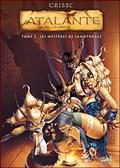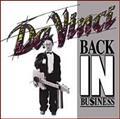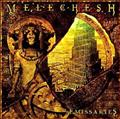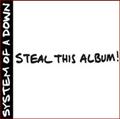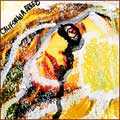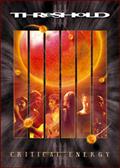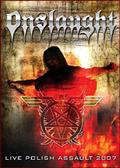MARILLION (uk) - Steve Hogarth (Oct-2009/VF-EV)
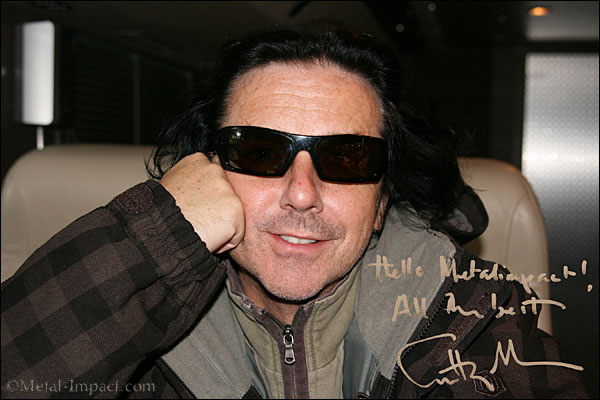
Je n’aurais jamais pensé qu’un jour j’aurais la possibilité de faire une interview de MARILLION…Et pourtant, je suis là, en ce mercredi à 15h15 dans le tour bus du groupe, face à un Steve Hogarth détendu, arborant de splendides sabots de plastique dorés. Un peu tendu, je lui fais remarquer que je salive devant ses magnifiques chaussures, et nous voilà partis…L’homme est bavard, très bavard. A tel point que sur 15 questions, je n’aurai le temps de lui en poser que 7. Mais l’homme est aussi passionné, franc, honnête, investi dirais-je. Il répond à mes interrogations, je rebondis sur ses déclarations, et la demie heure est déjà terminée. Steve avait des choses à dire sur Less Is More, le splendide dernier effort de son gang. Sur l’histoire de MARILLION depuis 1989 aussi. Sur la vie, ses coïncidences, sur les médias. Vous retrouverez tout ça, et bien plus, dans les lignes du dessous. Et même si MARILLION n’est pas votre tasse de thé, vous le saurez, j’en suis sur, reconnaître un groupe sincère qui ne se préoccupe que d’une seule chose : son amour de la musique...
Line-up : Steve Hogarth (Chant, Claviers), Steve Rothery (Guitare), Pete Trewavas (Basse), Ian Mosley (Batterie), Mark Kelly (Claviers)
Discographie : Script For A Jester’s Tear (EMI, 1983); Fugazi (EMI, 1984); Reel To Reel (EMI, 1984); Misplaced Childhood (EMI, 1985); Clutching At Straws (EMI, 1987); The Thieving Magpie (Emi, 1988); B’Sides Themselves (EMI, 1988): Season’s End (EMI, 1989); Holidays In Eden (EMI, 1991); A Singles Collection (EMI, 1992); Live At The Borderline (Racket Records, 1992); Live In Caracas (Racket Records, 1993); Live In Glasgow (Racket Records, 1993); Brave (EMI, 1994); Afraid Of Sunlight (EMI, 1995); Made Again (EMI, 1996); The Best Of Both Worlds (Emi, 1997), This Strange Engine (Sanctuary, 1997); Radiation (Sanctuary, 1998); Piston Broke (Racket Records, 1998); Tales From An Engine Room (Racket Records, 1998); Marillion.com (Castle Communication, 1999); Zodiac (Racket Records, 1999); Unplugged At The Walls (Racket Records, 1999); Anoraknophobia (EMI, 2001); Brave Live 2002 (Racket Records, 2002); The Best Of Marillion (EMI, 2003); Marbles (Racket Records, 2004); Marbles By The Sea (Racket Records, 2005); Popular Music (Racket Records, 2005); Smoke (Racket Records, 2006); Somewhere Else (Racket Records, 2007); Happiness Is The Road (Racket Records, 2008); Less Is More (Racket Records, 2009)
Metal-Impact. Bonjour à toi Steve. Votre nouvel album, Less Is More vient de sortir. Quel est le véritable sens de son titre ?
Steve Hogarth. Et bien c’est un album acoustique…Le but était de prendre de vieux titres, de les réinventer, les mettre à plat, les réduire à presque rien et de s’amuser avec…Certaines parties du morceau qui avant étaient un pont ou un refrain sont devenues des couplets, etc…Nous avons travaillé les arrangements avec de nombreux instruments acoustiques et à percussion, xylophone, Glockenspiel, un Dulcimer, un harmonium un orgue d’Eglise, tu vois, rien d’électronique. Pour créer des morceaux qui se développent dans un espace acoustique, qui aient une patère acoustique.
MI. Vous vouliez quelque chose de très organique en fait ?
Steve. Oui quelque chose d’organique, et d’assez vide par rapport à la musique électrique, qui est à la base très “remplie”, très puissante, avec de nombreuses couches, L’idée était de se débarrasser de toutes ces couches pour laisser place aux sons et à la voix.
MI. D’où est venue cette idée ? Est-ce juste une pause avant d’entamer quelque chose de nouveau ou différent ?
Steve. C’est effectivement un genre de pause car il y a un moment que nous évoluons dans cette routine d’écriture, d’arrangements, d’enregistrement, de promotion, de tournée, de fin de tournée, et de jam en studio, une fois de plus…Ca a été comme ça ces 20 dernières années et nous avions tous les 5 besoin de faire un break. Nous avons un proverbe en Angleterre, je ne sais pas si il existe un équivalent en France, “A change is as good as a rest”, en d’autres mots, le changement est une aussi bonne thérapie que le repos. Nous avons pensé que cela serait sympa de faire quelque chose de différent, d’une part parce que j’écris tous les textes, et de fait je ressens plus la pression que le reste du groupe, à chaque fois que nous enregistrons un nouvel album, ils se tournent vers moi, comme un vieux sage sous son arbre, et après 12 albums avec le groupe et quasiment 16 dans toute ma carrière, sous divers noms, il devient difficile de trouver quelque chose à dire! Tu peux partir dans la fiction, mais ça n’est pas mon truc, je préfère parler de moi…Alors ça devient difficile de puiser au fond de soi, de racler avec un couteau pour ramener un peu plus de chair, il fallait que je fasse une pause. Nous nous sommes alors dit “On va se plonger dans ce que nous avons déjà écrit, et le réinventer”, ce qui me laisse au moins un an pour souffler et trouver des choses à raconter...
MI. Lorsque j’ai écouté l’album, je ne savais pas qu’il s’agissait d’anciennes chansons retravaillées. Bien sur, j’ai reconnu des passages, mais le résultat fait vraiment penser à un nouvel album, non ?
Steve. Oui, ça peut sonner, et ça sonne parfois comme de nouveaux morceaux, car nous avons vraiment voulu nous démarquer des originaux, tout en essayant de faire fonctionner les changements! Certains titres sur cet album, comme “Quartz”, ou “Hard As Love” sont quasiment méconnaissables! …”The Space” est aussi très différent de l’original. D’autres comme “Go!” ou “This Is The 21st Century” sont sans doute plus fidèles. Nous avons change la tonalité de “This Is The 21st Century” qui est passé de La mineur à Ré mineur, soit 5 tons! Je chante complètement différemment, c’est beaucoup plus difficile, sur l’original c’était plutôt (Steve chante très bas…), maintenant c’est plutôt (Steve beaucoup plus aigu)…Et je dois chanter très fort pour atteindre la note, ce qui modifie l’essence même de la chanson. Pour moi c’est un ensemble de nouvelles chansons, et il y a d’ailleurs un inédit, qui s’intitule “It’s Not Your Fault” qui était seulement basé sur le piano et la voix et qui n’est jamais sorti.
MI. Comment s’est passé le choix des chansons ?
Steve. Chaque membre en a proposé une ou deux, Mike à proposé “Quartz”, le producteur “Interior Lulu”, j’ai moi même choisi “Go!”, “Hard As Love” était aussi mon idée, et Pete en a choisi deux…Steve Rothery en a seulement choisi une, il voulait jouer “Memory Of Water” différemment. Nous avions tous des idées, alors on a agité les titres, on les a mis à nu en studio, certains ont fonctionné, et d’autres pas. Si ils ne fonctionnaient pas, on les flanquait à la benne, et on se concentrait sur les autres. Finalement, ce sont les morceaux qui se sont choisis d’eux mêmes. Nous avons enregistré ceux qui selon nous sonnaient le mieux. Nous avons essayé “Fantastic Place” tu vois, de Marbles, 3 ou 4 fois, complètement différemment, ça a marché pendant une demie heure et c’est devenu chiant, alors on a arrêté là…
MI. Sur Less Is More on retrouve 3 titres d’Anoraknophobia, un album qui avait suscité pas mal de controverse chez les fans par son côté expérimental et électronique. Le fait de les proposer à nouveau en acoustique était il un moyen de les faire accepter plus facilement ?
Steve. Non...Tu sais, on ne raisonne pas comme ça. Lorsque nous sommes en studio, nous ne réfléchissons pas à ce que les fans vont penser, nous sommes honnêtes envers nous-mêmes et on s’en fout! Je pense que notre mission, que notre vrai but…Je veux dire, certains artistes sont très conscients des exigences du marché, car ils doivent à tout prix décrocher un hit ou des passages radio, ils sont très conscients d’avoir un son, et que s’ils le changent, les fans vont leur tourner le dos! Mais pas nous, on ne s’en préoccupe pas. On peut dire que notre tâche est d’être complètement égoïstes, nous rendre heureux, et nous stimuler en studio, en espérant que les fans soient enthousiasmés par ce qu’on fait. Nous créons ces petits morceaux de musique pour nous mêmes, non pas pour les fans ou pour l’argent, les medias ou le marché, nous ne pensons pas à ça. Pour être honnête, cela ne nous serait pas d’un grand secours de raisonner comme ça, je pense même que ça nous entraînerait à proposer un travail de moins bonne qualité …Et je pense qu’aucun membre du groupe n’avait réalisé que trois morceaux venaient d’Anoraknophobia, jusqu’au concert de Brighton, la semaine dernière! Je m’en suis rendu compte comme ça, “Et les mecs, on a combien de morceaux d’Anoraknophobia sur cet album?” Et finalement il y a “This Is The 21st Century”, quoi d’autre encore??? Je ne m’en souviens pas moi même! Ah oui, il y a “Quartz” également, et “If My Heart Were A Ball”…
MI. C’est donc une pure coïncidence ?
Steve. Oui tout à fait, nous avons réfléchi et choisi ces chansons au hasard, du genre, « Peut être qu’on pourrait essayer celle là, faire ça avec celle ci, on essaie et puis si ça ne marche pas, tant pis »…
MI. Ne craignez vous pas que Less Is More vous mette à dos la frange la plus Rock de votre public ?
Steve. Je ne crois pas…J’ai toujours comparé la musique à la nourriture tu vois. Ca n’est pas parce que quelqu’un adore le steak et les frites qu’il n’a jamais mangé de salade dans sa vie! Parfois le marché et les médias, aiment avoir une courbe démographique, des petites boites pour classer les artistes mais je ne pense pas que l’être humain soit aussi facile à classifier! Les gens aiment avoir le choix, ils veulent s’habiller eux même, écouter ce que bon leur semble, etc… Je crois que c’est un bon album, et si tu es fan de MARILLION, c’est en partie parce que le groupe est très ouvert, et qu’on ne sait jamais vraiment dans quelle direction on va partir. Nous sommes vraiment comme un groupe de joueurs, on ne sait jamais quoi attendre de nous. Et si tu es le genre de fan qui attend une musique bien spécifique du groupe, alors tu aurais du nous laisser tomber il y a plus de 10 ans mon pote!
MI. Cette réponse me rappelle une question que j’ai posée il y a quelques mois à John Petrucci à propos de DREAM THEATER, alors je te la pose aussi, peut on attendre de MARILLION ce que l’on ne peut pas attendre de MARILLION ?
Steve. Tout a fait! On ne sait même pas ce que l’on va faire nous mêmes lorsque l’on rentre en studio. Notre processus d’écriture part de jams, ce qui n’est pas vraiment bien préparé, c’est un procédé basé sur le hasard et l’anarchie, qui est quand même sanctionné par un contrôle de qualité très strict. C’est comme une distillerie, une fois que ça rentre d’un côté et que les petites gouttes sortent de l’autre, parfois c’est magique! Mais c’est parce que l’on procède de cette façon, et que nous rejetons tant de choses que nous ne savons jamais ce qui va en ressortir. Même lorsqu’un morceau est achevé nous ne sommes pas encore surs !
MI. Votre but en fait est simplement de jouer de la musique ?
Steve. Notre but est de créer une osmose entre nous cinq et d’en faire sortir quelque chose de magique en fait!
MI. Et c’est effectivement le cas!
Steve. Je suis heureux que tu le penses, même moi parfois je m’en rends compte, à certaines occasions, et je me dis "Putain, c’est vraiment étonnant…" Ces moments sont extraordinaires, et nous en sommes capables! De temps en temps, nous serions peut être capables de le faire systématiquement, car c’est ce que nous recherchons, car nous sommes très déterminés à ne pas nous répéter, et devenir une parodie de nous mêmes. Ce qui nous entraîne parfois à commettre des erreurs mais nous permet aussi parfois de faire quelque chose d’exceptionnel…
MI. La pochette est vraiment très belle et me rappelle celle de Let It Be des BEATLES. Mais ces compositions en noir & blanc montrent des musiciens à l’air fatigué, rassure moi, vous n’en avez pas marre de faire de la musique ?
Steve. Simon, un petit jeune travaille avec nous depuis quelques temps. Il nous a rejoint et travaille au bureau avec nous, Il bosse dans le graphisme et gère notre site, et réalise aussi les épisodes de Racket TV. C’est lui qui a pris ces photos. Pour répondre à ta question, je suis complètement crevé! (Il explose de rire!). J’ai un bébé de 18 mois et je n’ai pas dormi depuis 1 an. Mais non, nous ne sommes pas fatigués, juste en train de travailler (Il regarde la pochette), et nous sommes très concentrés! Ces photos ont été prises en studio. Et il s’est débrouillé pour capturer…C’est une photo très représentative de Steve Rothery, c’est un mec très sérieux, il écoute tout, il évalue…Ca c’est moi, il m’a shooté à travers un panneau vitré pendant que j’enregistrait mon chant, c’est pour cela qu’il y a tant de grain, c’est juste moi pendant mon travail, et Mark se concentre sur son travail aussi, sur un gadget électronique je pense…Et Ian a l’air très cool, il se marre probablement, ce qui nous arrive tout le temps en studio…C’est en fait un portrait fidèle de nous cinq…
MI. Votre dernier album, “Happiness Is The Road” était un double rempli de musique très variée. C’est comme si l’inspiration de MARILLION était intarissable. Comment faites vous pour être si créatif après 30 ans de carrière ?
Steve. Et bien je pense qu’il ne faut pas avoir peur d’explorer de nouveaux horizons. Ce qui demande du courage, mais c’est aussi un luxe d’avoir cette liberté, et je pense que certains artistes ont peur de ce changement, sous peine de perdre leur carrière dorée…Mais nous sommes très chanceux, nous avons nos fans, nous ne sommes pas liés à un style musical particulier, ni aux médias, nous n’avons pas une légende à perpétrer. Les gens nous écoutent à cause de cette liberté de ton, parce qu’il savant que l’on va leur offrir quelque chose de particulier. Ce qui les rend plus intimes à notre univers, ils continuent donc de nous soutenir, ce qui nous donne cette liberté, d’inclure de nouvelles influences. A une époque, MARILLION était un groupe influencé par les débuts du progressif, GENESIS, un peu de CAMEL, de PINK FLOYD mais nous avons dévié de ce style en incluant des influences extérieures, notamment des influences de la musique noire. Quand j’ai rejoint le groupe, la musique était si blanche, pas de Gospel, pas de Reggae, pas même de Rythm & Blues… Le jeu de Steve en solo était un peu Blues parfois, mais c’était le grand maximum! Et j’ai ajouté mes influences dans la marmite. Et l’influence des BEACH BOYS s’est pointée, une grande influence comme Phil Spector, ou les BEATLES. Et depuis nous écoutons beaucoup de musique de ce type, nous avons même découvert MASSIVE ATTACK. Et cette liberté là, de découvrir d’autres influences et de savoir que tu peux les utiliser pour ta propre musique, c’est ce qui nous garde motivés!
MI. Un an après que penses tu de cet album? Et pourquoi l’avoir vendu sur le net plutôt que d’une manière disons plus traditionnelle ?
Steve. A l’époque ou nous avons enregistré Anoraknophobia, nous avons décidé que nous n’avions plus besoin des maisons de disques. Et si nous en avions besoin, c’était pour les utiliser à nos fins, pas pour qu’ils nous enchaînent et nous disent ce que nous avions à faire, comme ils le font avec tant d’artistes et comme ils l’ont fait avec nous aussi. Nous savons à présent qui sont nos fans, nous avons cette base nominative de 18 ou 19.000 noms, on sait qui écoute notre musique et nous pouvons nous adresser à eux directement. Ce qui nous donne cette liberté et ce pouvoir. A partir de là, nous avons sorti nos albums sur notre propre label, mais ça change d’une année sur l’autre, parfois il est plus sensé de garder les choses pour nous, sans contrat d’aucune sorte, et cet album Less Is More en est un bon exemple, nous avons un contrat pour cet album, car un mec qui dirige un label est venu nous voir d’Allemagne où il habite et travaille, il s’est assis et nous a dit “Je sais ce que vous êtes en train de faire, j’ai regardé Racket TV, je suis un gros fan du groupe, je comprend votre démarche, et je veux sortir ce disque!” Nous lui avons répondu, “Ah oui? Et bien tu ne peux pas avoir ça, ça non plus, nous aurons besoin de ceci et de cela, tu ne peux pas avoir ça…” On attendait juste qu’il se casse! Mais nous n’avons pas trouvé de raison valable de l’envoyer paître, il était à fond dans le projet, il voulait vraiment sortir le disque en respectant nos conditions financiers et créatives, alors évidemment nous avons accepté. Lorsque nous avons enregistré Happiness Is The Road, ça n’est pas arrivé, donc nous étions relativement contents qu’il sorte, mais après sa sortie nous avons signé un accord de licence avec EMI…
==================== ENGLISH VERSION ====================
Metal-Impact. Hi Steve, Your new album « Less Is More » is available now. What is the real meaning of the title of this record?
Steve Hogarth. Well it’s a acoustic album…The key was to take old songs, and to try to find a way to reinvent them, restrict them right down, almost to nothing, and change them around…Some of the parts in the songs, that before might have been a middle eight are now a chorus, something that might have been a chorus is now a verse…And we arranged them, using acoustic instruments, a lot of percussion instruments, xylophone, Glockenspiel, and a Dulcimer, harmonium and pipe organ, you know, nothing electronic. In order to create something that has an acoustic space, and an acoustic character.
MI. Actually you wanted something very organic?
Steve. Yeah, somewhat organic, and something much emptier than the electric music, normally very full, powerful, with many textures, the idea with this was to remove all the agents, to leave just the songs and the voice.
MI. Why the idea of re-recording some of your past songs in this acoustic way? Is it just a pause before moving onto something new or different?
Steve. It is in a way a bit of a pause because, we’ve been on this kind of treadmill of writing, arranging, recording, promoting, touring, come off tour, start jamming again…and it’s been like that for 20 years, and, I mean, all the five of us felt the need to take a break. We have an expression in England, I don’t know if you’ve got the same in France, “A change is as good as a rest”, in other words, to change is as a good therapy as doing nothing. So we thought it would be nice to do something different also, because I am writing all the lyrics these days, I’ll tend to be under more pressure, than the rest of the band, you know, each time we come to write a new album, they look unto me, to provide some kind of wisdom down you know, from the tree, and after 12 albums I’ve made with the band, and almost 16 albums in my life, under various names, it comes hard to have something to say! You can dream up some fiction, but I’m not really about fiction, my words are about my experience…So, it can be difficult to go digging around inside yourself again, with a knife, for some more flesh, and I really needed a break from that. So…We said “Okay, we go back to what we’ve already written, and we reinvent it!”, so at least it will give me another year to have something to say.
MI. And the way you re-created the songs I’d like to say…When I first listened to the album, I didn’t know it was re-recordings of previous material, I thought it was a new album. Obviously some parts of the songs remind me of old Marillion material, but I think it looks like something brand new, no?
Steve. Well, it’s certainly new, new music, we tried to make these songs as different as possible from the originals, while making sure they still worked! Some songs on the album like “Quartz”, or “Hard as Love” are almost unrecognizable…”The Space” is not really recognizable, from the original. Other songs like “Go!” or “This Is The 21st Century” are probably more recognizable as what they were…We moved the key of “This Is The 21st Century” from A minor, all the way up to D minor, five tones! So I am singing in a totally different place, it’s much harder, on the original it was very (Steve is singing low…), now it is (Steve is singing in a much higher key)…And I’m having to sing loud, to hit the note, so that changes the whole nature of the song as well. In my head it feels like a brand new set of songs, there is one brand new song, called “It’s Not Your Fault” which was only piano and voice and have never been released.
MI. Can you explain us, how did you choose the songs to rework?
Steve. Each member of the band suggested one or two, Mike suggested “Quartz”, as the producer suggested “Interior Lulu”, I suggested “Go!”, “Hard As Love” was my idea, and then Pete suggested a couple…Steve Rothery only suggested one, he wanted to do “Memory Of Water” in a different way. So each of us had ideas, then we threw the songs around, stripped them down in the studio, some of them worked, and some of them didn’t. If they weren’t really working, well we put them in the bin you know, and carried on with the ones that worked. The songs, in the end chose themselves. We recorded the ones we felt were functioning. We tried “Fantastic Place” you know, from Marbles, 3 or 4 times in a complete different way, and that worked for about less than half an hour, and it became boring, so we didn’t bother taking it any further.
MI. Less Is More features 3 songs from Anoraknophobia album, a release that raised much controversy in the Marillion’s fans hearts, mainly because of its experimental side, very influenced by electronics. Was this acoustic treatment a way to get them more easily accepted?
Steve. No...We don’t think about those things you know. We never sit in the studio and think about what the fans think, we’re really honest we don’t care! I think our mission in life, and our purpose is to…I mean some artists are very conscious of the marketplace, because they need to have a hit, or they need to be on the radio, some artists are very conscious that they have a sound, and if they change that sound maybe all the fans will go away! We’re really not like that at all, we don’t care. So our mission in life is to be totally selfish, and make ourselves happy, and excite ourselves in the room, I hope that everybody else gets excited to. So we create these pieces of work for ourselves, not for the fans or for money or for the radio or the market, we don’t think about that. To be honest I don’t think it would help if we did think about that, it would mean we have created weaker work…And I don’t think any member in the band noticed there were three songs from Anoraknophobia, until we were on tour in Brighton a week ago! It suddenly occurred to me, “How many songs have we got on this record from Anoraknophobia?” We have “This Is the 21st Century”, what else have we got??? I don’t remind myself! Well, we have “Quartz” too, and “If My Heart Were a Ball”…
MI. So it’s a pure coincidence?
Steve. Yeah, complete coincidence, we just picked these songs out of our heads, maybe we could take this, and do this with it, let’s try, it doesn’t work, nervermind, you know…
MI. Don’t you fear that “Less Is More” will alienate you a part of your following, pretty much into Rock music?
Steve. I’ve never really been that sure that…I always think about it like food you know, if somebody likes steak and chips, that doesn’t mean they never wanted a bit of salad in their life! Sometimes the media and the music business to some extend, they like to have a demographic, they like to have a box to put something in, but I don’t think human beings are actually that simple! Human beings expect more colours, they wanna experience themselves food, music, or the way they dress! I think it’s a really good record, and I think if you’re a fan of this band, part of reason you’re a fan is probably because the band is really open minded in terms in where it’s gonna go. We are a little of a maverick band, you don’t really know what to expect from us next. And I think if you’re the kind of person that wants a specific music from Marillion, you’d probably have left us ten albums ago, to be honest!
MI. This conversation reminds me a question I asked John Petrucci a few months ago about his band DREAM THEATER, so I ask you too, can we expect from Marillion what we can’t expect from Marillion?
Steve. Yeah! We don’t know what to expect from ourselves when we’re going into the studio to make a record. And we write by jamming, it’s a very strange process, it’s not really a process of design, it’s a process of chance and anarchy, followed by a very strict quality control process. It’s like a distillation, and once the shit comes in at one end, you know, these little drops come out at the other, and we realize it’s the magic! But because we write like that, and because we reject so much of the random stuff that goes on when we are jamming, we never have the slightest idea of what will come out, even when it’s made, we’re not sure!
MI. Actually you’re main goal is to play music?
Steve. Our main goal is to try to have a chemistry going between the five of us which creates something magical.
MI. And indeed it is magical?
Steve. I’m glad you think so, there are times when even I can see that, you know when I just think “Waouh, this is amazing!” Well these moments are extraordinary, we are capable of that! Occasionally, maybe we can do that all the time, because it’s what we’re searching for, because we’re very determined to try and not repeat ourselves, or to become self conscious and to become a parody of ourselves. That lefts us the freedom to make mistakes but also to do occasionally something amazing…
MI. The cover is really beautiful, it reminds me of the Beatles “Let It Be” cover. But the black and white pictures composition seems to show very tired musicians. Please reassure me, you’re not tired of playing music?
Steve. We’ve got a new kid working for us at the moment, called Simon. He came to our staff and he’s working with us all the time in the office, and he’s a graphic artist, and he’s also programming our website, and generating the episodes of Racket TV. To answer your question, I’m completely exhausted! (He laughs loud!). I have an 18 months old baby boy, I haven’t slept for about a year. No, I think we’re just working (He looks at the cover), we’re very concentrated! These pictures were taken while we were working. And he managed to catch…That’s a typical shot of Steve Rothery, he’s a very serious guy, he listens everything, evaluating…That’s me, I think he shot that through a pain of glass, that’s why it looks so grainy, during a lead vocal, so that’s me doing what I do, and Mark looks like he’s focusing on some kind of work, he’s probably taking some electronic gadget apart at this moment…And Ian is looking very relaxed, and having a bit of a laugh, which is again what’s usually going on in our studio…It’s quite an accurate presentation of the five of us as well…
MI. Your previous effort, “Happiness Is The Road” was a double album, filled with a lot of songs mixing different styles. It seems that the inspiration Of MARILLION is endless, and extremely wide. How can you be so creative after more than 30 years of career?
Steve. Well, I think you have to be determined to try and go to new places all the time. And that takes a certain amount of courage I think, it is also a certain luxury in having the freedom to do that, and I think that some artists just don’t dare because they think they’ll lose their lovely career if they change…But we’re lucky, we have our fans, we are not kind of bound to styles, to media, we don’t have to keep a myth going. The people who listen to us because they know we’re free, because they know we might do something peculiar, anytime. And yet they’re intimate and they like that, and they carry on supporting us, and it gives us the freedom really, just to push ourselves into new influences, I think there was a time when Marillion was really just a band with influences of early progressive Rock music, Genesis, a little bit of Camel, a little bit of Pink Floyd…But we’ve completely taken on so many other influences over the past 20 years, particularly black influences. Because when I met the band, they were very white, there was no Gospel, there was no Reggae, there was not really rhythm and Blues. A little bit of Blues in Steve’s guitar playing, but that was the blackest they ever go! And I began introducing Soul and Gospel influences to the mix. And then the Beach Boys crept in, Beach Boys were a big influence as Phil Spector, The Beatles crept in as well. And since then we’ve listened to a lot of that, we’ve been listening to Massive Attack. And the freedom just to do that and to get excited about something new that you hear, and feel you can use it, I think that’s what kept us being exciting!
MI. One year after, what kind of look do you have upon this album? Are you still satisfied of it? And why did you choose to sell “Happiness Is The Road” on the net rather than in a more traditional way?
Steve. We decided quite a while ago now, around the time of Anoraknophobia, that we didn’t really need the record business. And if we do need the record business, it’s theirs to be used, and it’s not theirs to tell us what to do, it’s not theirs to tie us up, or to dictate conditions to us, like it was for so many artists, and like they used to do for us. We’ve arrived to a place where we knew who our fans are, we have this base of 18 thousand names, we know who the people are who listen to our music, and we can communicate with them directly. This gives us this power. So, from that point on, we really were making our records on our own label, and sometimes it changes from year to year, sometimes it makes more sense to keep it to ourselves, and not contract any kind of record deal, and this album Less Is More is a good example, we actually got a record company, a guy who’s running a label came, he flew to England from Germany where he’s living and working, sat down, and said “I know what you’re doing, I’ve been watching Racket TV, I’m a huge fan of the band, I really understand what you’re trying to do, and I want to put this record out!” We told him, “Huh, do you? Well you can but you can’t have this, and you can’t have this, and we gonna need this, and we gonna need that, and you can’t have that…” We were just waiting for him to leave! So we couldn’t find a good reason to tell him to fuck off, he was so up with this project, he was really willing to release it on our terms, on our business terms as well as on our creative terms, so it was obviously the right thing to do. When we recorded Happiness Is the Road, that didn’t happened so we were quite happy for it to just come out, but in the end after his initial release we did contract a licence with EMI…
Ajouté : Mardi 27 Octobre 2009
Intervieweur : Mortne2001
Lien en relation: Marillion Website
Hits: 21348
|



